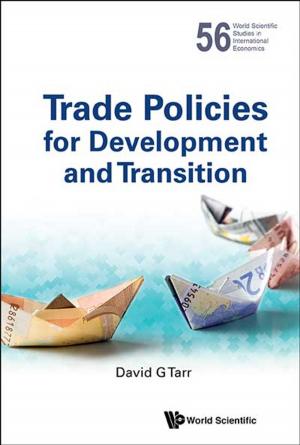The Great Recession
History, Ideology, Hubris and Nemesis
Business & Finance, Finance & Investing, Corporate Finance, Finance| Author: | Michael Siam-Heng Heng | ISBN: | 9789814338639 |
| Publisher: | World Scientific Publishing Company | Publication: | July 16, 2010 |
| Imprint: | WSPC | Language: | English |
| Author: | Michael Siam-Heng Heng |
| ISBN: | 9789814338639 |
| Publisher: | World Scientific Publishing Company |
| Publication: | July 16, 2010 |
| Imprint: | WSPC |
| Language: | English |
Many books on the 2008 financial crisis and the current recession focus on the financial sector. Unlike them, this book takes the real economy as the starting point and it situates the downturn within the societal context over the last several decades. Important elements of the story include global manufacturing overcapacity and declining profitability, failure of advanced industrial economies to make a quantum jump in discoveries and innovations across a broad range of technologies, ascent of neo-liberalism after the fall of the Berlin Wall, the Asian financial crisis, the Japanese “lost decade”, and the dot-com boom. This provides the backdrop of the birth of a market society, deregulation, easy credit, and financial excesses.
The financial crisis reveals much that has gone astray in the business world over the last few decades — short term thinking, manipulation of figures and image management at the cost of the basics. The financial sector has become an arena for accounting shenanigans and corporate skullduggery. It is also a symptom of deeper social and cultural change. Crisis of a very serious nature functions as a cleansing exercise. Already we have seen debates which re-examine values and ideas, state policy and business practices. If the world could rise to the challenge, history will view the crisis as a blessing in disguise and thus render it in positive terms.
Contents:
- From Berlin Wall to Wall Street
- A Tale of Two Crises
- Insights from Japan's “Lost Decade”
- Special Features of the 2008 Crisis
- Bonfire of Financial Excesses
- The Moral Economy
- A New Financial Landscape?
- Globalization and All That
- Don't Waste the Crisis
Readership: General public and finance professionals.
Key Features:
- Examines factors of the current financial crisis that have been neglected in current discussion
- Analyzes the new ideological shift after the fall of the Berlin Wall
- Provides an holistic analysis of the current financial crisis, and offers fresh insights into the social causes of the crisis
Many books on the 2008 financial crisis and the current recession focus on the financial sector. Unlike them, this book takes the real economy as the starting point and it situates the downturn within the societal context over the last several decades. Important elements of the story include global manufacturing overcapacity and declining profitability, failure of advanced industrial economies to make a quantum jump in discoveries and innovations across a broad range of technologies, ascent of neo-liberalism after the fall of the Berlin Wall, the Asian financial crisis, the Japanese “lost decade”, and the dot-com boom. This provides the backdrop of the birth of a market society, deregulation, easy credit, and financial excesses.
The financial crisis reveals much that has gone astray in the business world over the last few decades — short term thinking, manipulation of figures and image management at the cost of the basics. The financial sector has become an arena for accounting shenanigans and corporate skullduggery. It is also a symptom of deeper social and cultural change. Crisis of a very serious nature functions as a cleansing exercise. Already we have seen debates which re-examine values and ideas, state policy and business practices. If the world could rise to the challenge, history will view the crisis as a blessing in disguise and thus render it in positive terms.
Contents:
- From Berlin Wall to Wall Street
- A Tale of Two Crises
- Insights from Japan's “Lost Decade”
- Special Features of the 2008 Crisis
- Bonfire of Financial Excesses
- The Moral Economy
- A New Financial Landscape?
- Globalization and All That
- Don't Waste the Crisis
Readership: General public and finance professionals.
Key Features:
- Examines factors of the current financial crisis that have been neglected in current discussion
- Analyzes the new ideological shift after the fall of the Berlin Wall
- Provides an holistic analysis of the current financial crisis, and offers fresh insights into the social causes of the crisis















